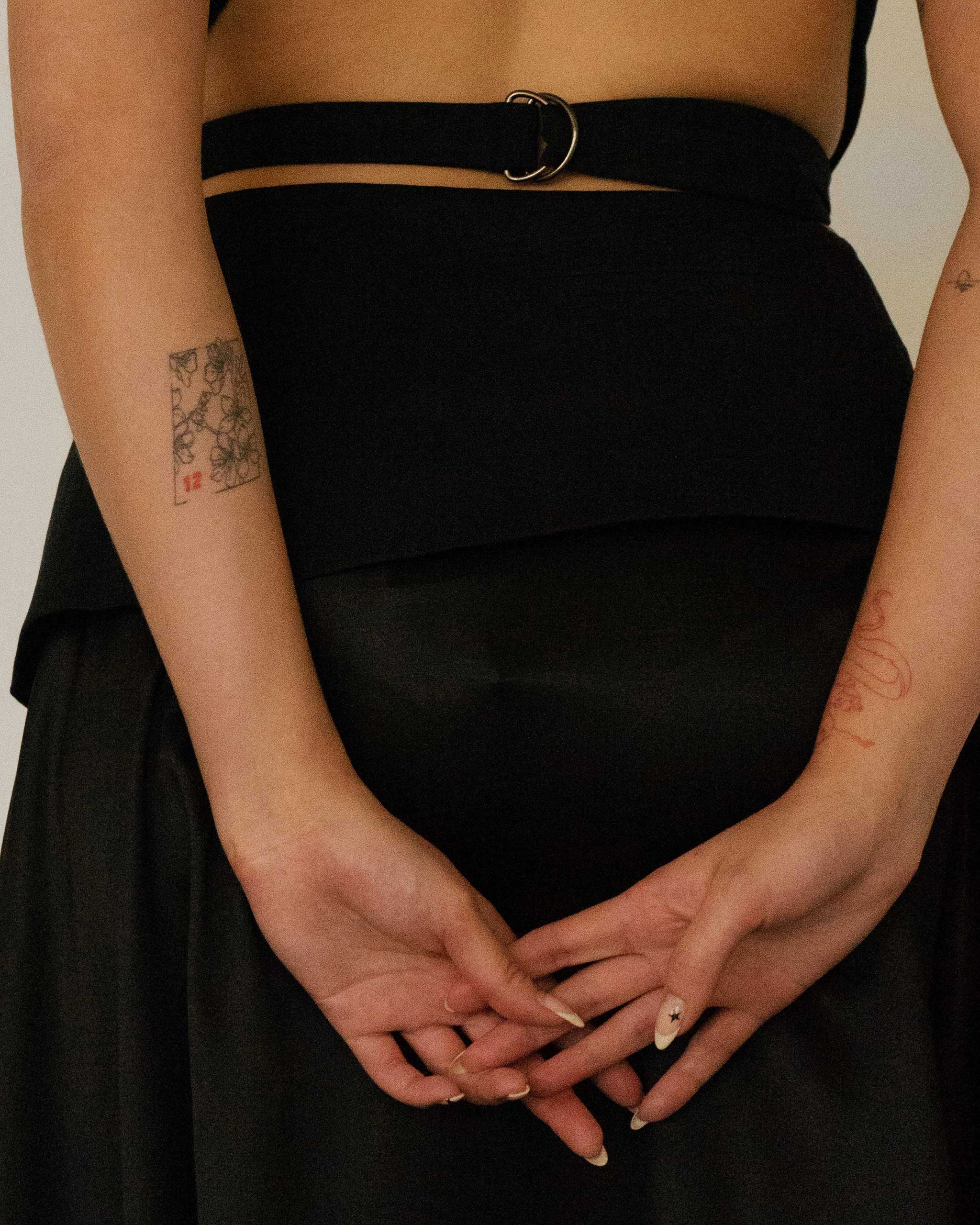Tattoo by @norink__ of Crimson River Tattoo. Photo by Aida Adem, courtesy of Maya Nilsen
Getting a tattoo can be a pleasurable experience when approached with knowledge and care.
As attitudes on body art continue to shift, tattoos stand out as a powerful medium to define and personalize an individual’s perception of beauty.
Whether you’re getting your first or your 25th, here are some things to keep in mind before your next tattoo appointment:
Ensure that you are in the right mood and headspace to get a tattoo.
Preparing for a tattoo involves more than just choosing a design. Mentally preparing yourself for the experience can make a significant difference in how you perceive the pain and overall enjoyment of the process. According to Gigie Santiago, a tattoo artist practicing for a decade currently working with the tattoo artist collective Crimson River Tattoo, you have to make sure you’re in the right mood before their appointment. “Don’t overthink about the pain and just make sure you had a meal before our session.” Santiago says.
Collaborate and communicate with your tattoo artist about your design.
Instead of fixating on the pain, clients should focus on the excitement of getting a new piece of art on their body. The possibilities are endless for tattoo designs, but the price varies, too. Prior to settling on a design and a budget, it is important to inform the tattoo artist first so they could give an accurate quote.
Before setting an appointment, a client should take some time to explore different tattoo designs and styles to find the right fit. Some clients are drawn to traditional, blackwork, or watercolor tattoos, and communicating this with the artist beforehand can make the consultation process easier and help your artist bring your vision to life.
“I think it’s best for clients to be more open to collaborating with their artists and let us know if they have any concerns about their design,” Santiago says. “It would be easier for the both of us to conceptualize and have a better vision of what they would like to get.”
Gigie adds that the placement of a tattoo can greatly impact its overall aesthetic and longevity. It’s valuable to consider factors such as the size and orientation of the design in relation to the chosen placement. For example, tattoos tend to look more flattering when they are facing a certain way and are properly sized for the area. Additionally, it’s important to keep in mind that certain areas of the body, like the hands and feet, are more prone to fading over time.
Follow your tattoo artists’ advice for proper aftercare.
To avoid complications and infections, it is important to wash and clean your tattoo after the session, but only with gentle soap and water. Newly tattooed clients should also avoid prolonged water exposure on the area tattooed. “Our advice is to chill for a while and not workout for about a week after getting a tattoo,” Santiago says. “No swimming or soaking in baths for a month, too!”
A frequent concern clients have about tattoos is skin scabbing. However, with proper moisturizing with antibacterial moisturizers and tattoo creams, you don’t have to worry. A good tattoo actually, Santiago says, should not scab that much. “But if you do have some scabbing, make sure you don’t go overboard with the aftercare cream,” she says. “Let your tattoo breathe and let the scabs fall on its own.”
Your connection to your tattoo is personal.
In many spaces, individuals proudly show off their tattoos to creatively express themselves. Based on a study published in the journal Body Image, men and women both expressed higher body appreciation and better self esteem after getting a tattoo. People who partake in the art of tattooing also do so to document their individual journeys. Some of them use tattoos to showcase their recovery from sickness, while others use it to commemorate loved ones.
However, in certain communities and areas, tattoos still carry negative connotations. In a study in The Journal of Social Psychology, despite the growing popularity of tattoos, negative stereotypes about tattooed persons still persist. Due to a lack of open discussion and education about the art form, the stigma surrounding tattoos can hinder individuals from seeking out accurate information and exploring their interest in it. Worse, this can lead to bad experiences or harmful practices.
Through staying informed, supporting tattoo artists and salons that engage in safe and ethical practices, and prioritizing your own health and wellness, the experience of getting a tattoo can be as stress-free and as fulfilling as possible.
